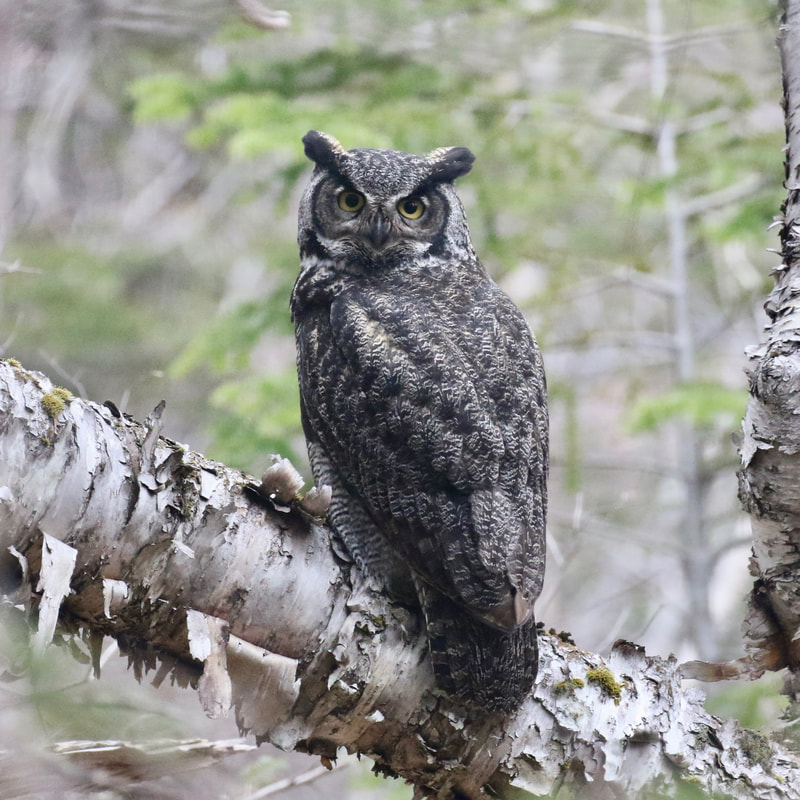|
Great Horned Owl. Photo by Alvan Buckley
|
The Nocturnal Owl Survey provides citizen scientists in NL the chance to contribute to important long-term research for some of the province's most charismatic bird species: owls.
Owls are top predators and are vulnerable to environmental disturbances such as toxins and habitat loss, making them excellent indicators of environmental health. However, due to their secretive nature and nocturnal habits, they are not well monitored by traditional bird surveys. During the Nocturnal Owl Survey, more than 1000 volunteers across Canada spend a spring evening outdoors counting owls. Volunteers sign up to survey one (or more) pre-defined owl survey routes for one night between 1 April and 15 May. Each route consists of 10 stops, separated by 2 kilometers. At each stop, volunteers alternate between timed silent listening periods and playback of owl calls, and record all owls seen or heard. |
Information on owl populations is essential for developing sound conservation strategies, identifying species in need of conservation action, and evaluating the effectiveness of management programs. The data collected by Nocturnal Owl Survey volunteers ensures that we monitor the distribution, abundance, population trends and habitat associations of these important nocturnal species.



